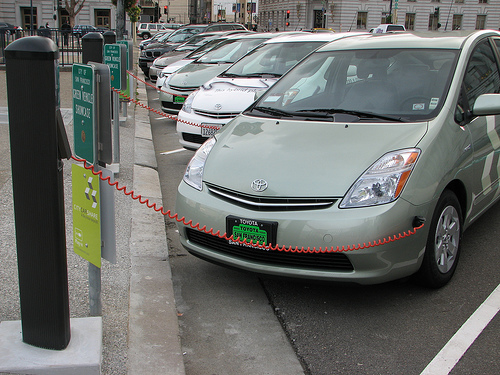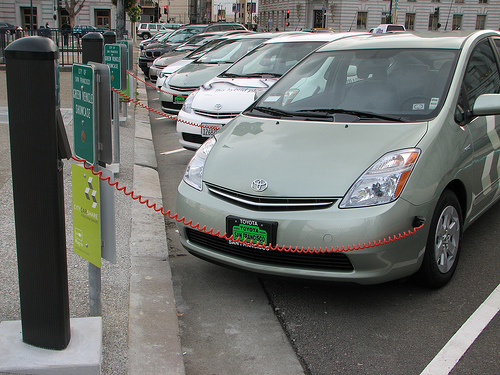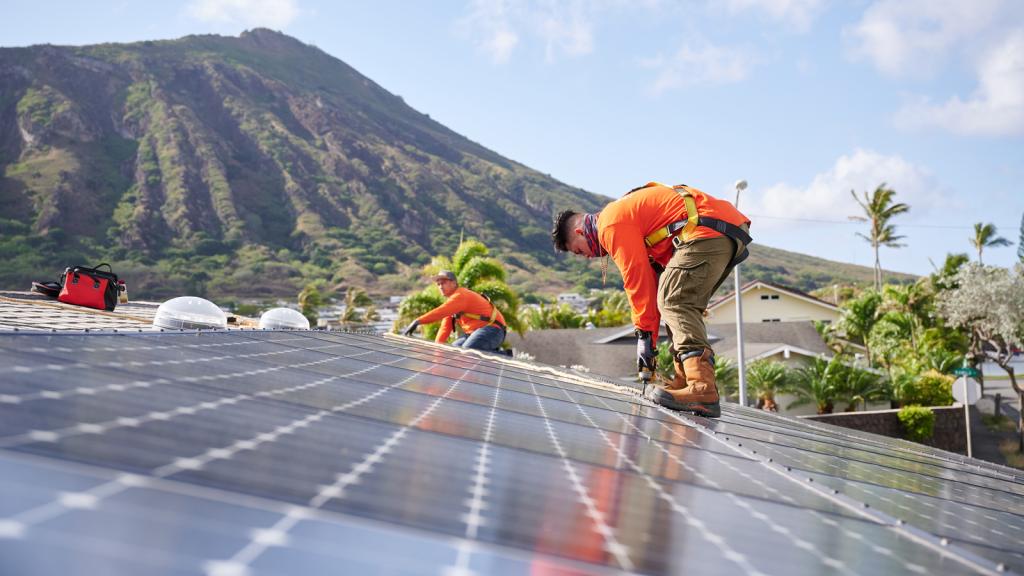 New public investment aims to expand Bay Area charging infrastructure.Photo courtesy of felixkramer via flickr
New public investment aims to expand Bay Area charging infrastructure.Photo courtesy of felixkramer via flickr
In a few months, you’ll be able to buy a Nissan Leaf or Chevrolet Volt if you live in places like San Francisco. But where are you going to plug in your electric car?
When I took a spin in the Leaf last week in San Jose, one of the car’s features was a large touch screen that displayed a map locating nearby charging stations — all two of them.
On Wednesday, the Bay Area Air Quality Management District moved to fill out that map, voting to allocate $5 million to subsidize the installation of 3,000 home charging stations, 2,000 public charging stations, and 50 fast-chargers near highways. (Fast chargers can top off an electric car battery in a matter of minutes rather than hours.)
The district regulates air pollution in the nine-county San Francisco Bay Area and it has taken a keen interest in electric cars for good reason.
Transportation is responsible for more than half of the region’s air pollution and replacing carbon-spewing cars with emission-free ones will go a long way to improving public health and keeping the area in compliance with state and federal air quality standards.
“The past several years have seen exciting progress in the development of electric vehicle technology,” Jack P. Broadbent, the air district’s chief executive, said in a statement. “Creating a useful charging network will make it easier for Bay Area residents to spare the air every day by going electric.”
The details of how the $5 million will be distributed remain to be worked out, Ralph Borrmann, an air district spokesman, said in an email.
“The funding mechanism may be a combination of a traditional grant program with a voucher component,” he said. “So for example, a resident may purchase a charging system from a dealer who provides an incentive voucher which will be paid for through the air district.”
Borrmann said the air district won’t own the public charging network, which will be deployed in employer and public parking lots.
It remains to be seen just how much of a charge the air district will actually get for its $5 million investment, given that installation of a single home charging station can cost more than $2,000. But the move to support electric cars underscores the fact that greening transportation isn’t just good for the environment, it’s good for human health.



